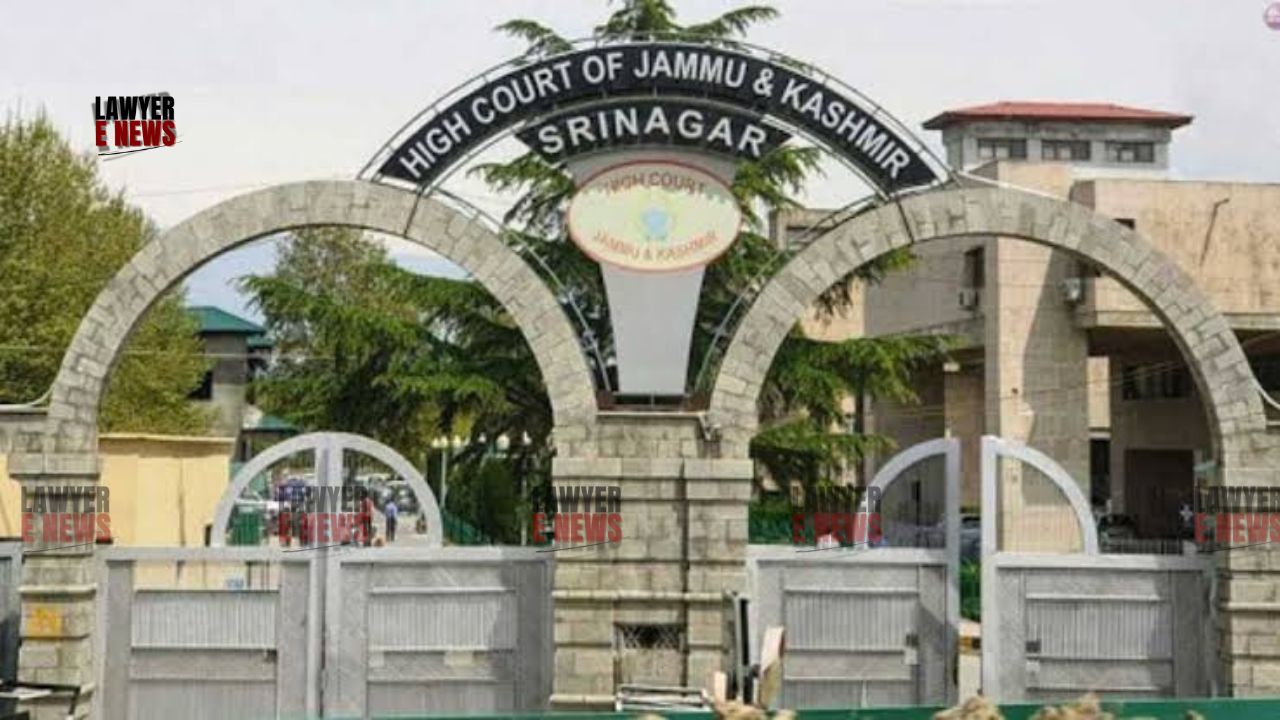-
by Admin
15 February 2026 5:35 AM



In a recent Judgement, High Court of Jammu & Kashmir and Ladakh at Jammu directed the Sub-Judge (Chief Judicial Magistrate) Poonch to return the plaint to the respondents due to non-compliance with Section 80 of the Code of Civil Procedure, 1908. The court emphasized the necessity of serving notice to public officials before initiating a suit against them, which was not done in this case.
The petitioners had filed a civil revision under Section 115 of the CPC, challenging the order dated February 7, 2023, passed by the Sub-Judge (Special Mobile Magistrate) Poonch. In the civil suit filed by the respondents, 16 defendants were named, including public/government officials (defendants No. 1 to 9) and private individuals (defendants No. 10 to 16). The suit sought a mandatory injunction to remove 14 illegally constructed shops and to vacate the land.
The petitioners, who were private individuals among the defendants, filed an application under Order 7 Rule 11 of the CPC seeking rejection of the plaint. They contended that the suit was not maintainable due to the absence of a notice under Section 80 CPC, which is required when public officials are involved.
The core legal issue was whether the suit was maintainable without issuing a notice under Section 80 CPC to the public officials named as defendants. Section 80 mandates a two-month notice period to be given to public officials before instituting a suit against them, except in cases where urgent or immediate relief is necessary.
The High Court observed that the Sub-Judge had permitted the institution of the suit without a Section 80 notice through an ex-parte order dated December 6, 2016, without evaluating the urgency. The High Court found this to be a lapse, as the suit was seeking the removal of shops, which did not present an immediate or urgent relief situation justifying the bypassing of the notice requirement.
Justice Rahul Bharti held that the Sub-Judge (Special Mobile Magistrate) Poonch erred in not applying the proviso to Section 80(2) CPC. The court should have considered whether the case required urgent relief before allowing the suit to proceed without notice to the public officials. Since the Sub-Judge did not evaluate the necessity of dispensing with the notice, the suit could not proceed as filed.
The court directed the Sub-Judge to return the plaint to the respondents, allowing them the option to serve the mandatory two-month notice to the public officials as required under Section 80 CPC or to proceed against the private defendants only. The High Court ordered the Sub-Judge to comply with this direction within seven days of receiving the certified copy of the order.
The Jammu & Kashmir High Court underscored the mandatory nature of Section 80 CPC notice before instituting a suit against public officials. By ordering the return of the plaint, the court reaffirmed the requirement of adherence to procedural norms in civil litigation, especially when public officials are involved. This ruling ensures that suits cannot proceed without first providing the concerned public officials an opportunity to address the matter before the court's intervention.
Date of Decision: September 11, 2024
Mohd. Aslam & Ors. v. Raiz Ahmed & Ors.
